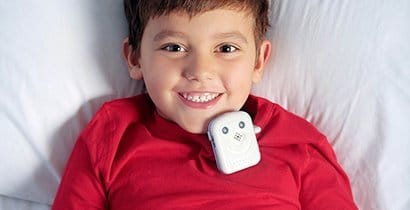Bedwetting is no enjoyable for your kid, who’s awakening with drenched sheets, or for you, the moms and dad. This problem is common, with about 5 million kids in the U.S. moistening the bed, according to a website. About 20 percent of five-year-olds, 10 percent of seven-year-olds and 5 percent of 10-year-olds damp the bed.
If your child is moistening the bed, she or he will probably outgrow it, but it can be very difficult in the meantime. The following ideas can assist you and your kid put bed-wetting to rest quicker:
Stay favorable
Your kid can’t manage bed-wetting and might be humiliated that it’s taking place. Ensure that you don’t blame or penalize however rather stay motivating. If you or your spouse damp the bed as a child, it can assist for your own child to know this and to recognize that it’s most likely a temporary problem. Don’t discuss your child’s bed-wetting in front of other member of the family and make sure that if other kids in the family learn about it, they comprehend that teasing is not OK.
Adjust fluids
It is essential for your kid to remain well hydrated during the day, but it can assist to limit liquids at night (as long as your child isn’t really active with sports or other activities at this time). You need to likewise limit drinks with caffeine at any time of day, but specifically in the evening, given that they can stimulate the bladder.
Encourage regular toilet usage
Attempt to encourage your child to use the toilet routinely throughout the day – about every 2 hours if possible. And he or she ought to establish the practice of using the restroom prior to bed. Encourage your child to get up during the night to use the toilet if she or he gets up and make this simple by offering small nightlights from the bed room to the restroom. If essential, you can likewise supply a portable toilet.
Focus on the positive
While you should never ever blame your kid for wetting the bed, a reward system can help offer positive reinforcement. Keep a shiny star or happy face sticker label chart to keep track of dry nights, and when your kid reaches a particular number of days in a row, provide a small treat or toy.
Dismiss constipation
Possibly surprisingly, bed-wetting can be related to constipation. Large or tough poop can fill the rectum and put more pressure on the bladder, which can trigger nighttime bed-wetting and even daytime accidents. Take a look at your child’s bowel habits to see if he or she is having an everyday defecation which the stool doesn’t look hard. If it does, increase the quantity of fluid and fiber your child gets with beverages and foods like apple juice, fruits, veggies and whole grains.
Speak with your child’s pediatrician
Most of the times, bed-wetting is momentary and your kid will outgrow it without any treatment. But it can help to speak with your child’s pediatrician about the problem. The physician can speak with you about your kid’s fluid consumption, bowel and bladder practices and household history. Based upon this details, he or she might advise eliminating issues such as a urinary tract infection. If no specific cause is recognized, the doctor can provide helpful ideas and recommendations for dealing with bed-wetting.
Consider Bedwetting alarms
Your child’s doctor might advise a Enuresis alarm if other changes haven’t been successful. You can buy these battery-operated sensing units without a prescription at a lot of pharmacies, and they connect to a pad on your child’s pajamas or bed linen. When wetness is found, an alarm will sound, and preferably your child will have the ability to stop the stream of urine and go to the toilet to finish. These devices can assist, but they may require numerous months to be efficient.

